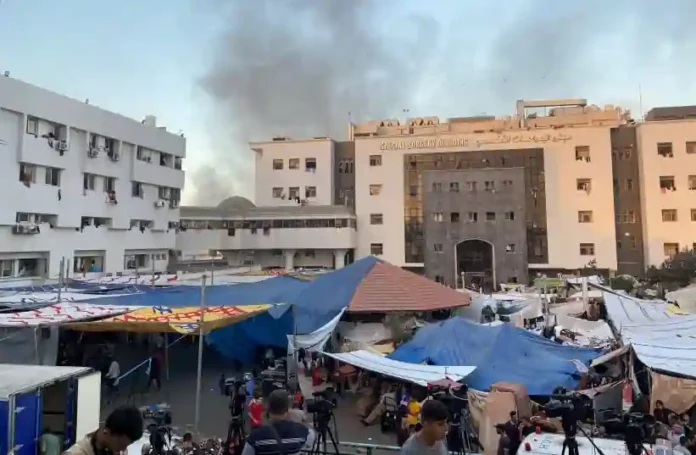In a significant development, the Israeli Defense Forces (IDF) and the Shin Bet have released 50 Gaza detainees, among them Muhammad Abu Salmiya, the director of Gaza’s Shifa Hospital.
Abu Salmiya had been in administrative detention since November 23, 2023, amidst ongoing investigations into Hamas’s use of the hospital for terror activities.
Suspicious Interrogation, No Concrete Evidence
Abu Salmiya’s detention was based on his purportedly suspicious answers during interrogation regarding Hamas’s operations within Shifa Hospital.
However, the lack of concrete evidence connecting him directly to any terror activities led to his prolonged administrative detention without formal charges.
A senior IDF source revealed to The Jerusalem Post last November that although Abu Salmiya’s answers raised suspicions, they were insufficient to justify his extended detention beyond the seven-month period typically allotted under administrative detention rules.
Legal Proceedings and Delays
Abu Salmiya underwent three hearings before Israeli courts, the most recent of which was semi-public in December 2023. His detention was extended during a videoconference with an unidentified Israeli civilian Magistrate’s Court, reflecting the challenges posed by the ongoing war and the massive number of detainees.
Legal and security sources cited these issues as reasons for the extended duration of his case and the absence of a formal indictment.
Shifa Hospital and Terror Activities
The controversy surrounding Abu Salmiya’s detention is closely tied to the IDF’s operations in Shifa Hospital, a location Hamas allegedly used as a base for terror activities and hostage concealment.
Despite documentation showing Hamas terrorists bringing hostages into the hospital, no direct evidence implicated Abu Salmiya in these activities. Prior to his detention, the Shin Bet had prevented him from meeting with a lawyer under current war emergency regulations.
Government and Political Reactions
The release of Abu Salmiya and other detainees has sparked a political firestorm within Israel. Opposition politicians and government ministers exchanged accusations over who bore responsibility for the releases.
Right-wing ministers, embarrassed by the periodic nighttime releases of several hundred Gazan detainees, blamed the Shin Bet, despite the agency being under the authority of Prime Minister Benjamin Netanyahu and his government.
Netanyahu distanced himself from the decision, claiming ignorance about the detainees’ identities and attributing the releases to the High Court of Justice. Defense Minister Yoav Gallant similarly stated he was unaware of the detainee releases, though such knowledge falls within his jurisdiction.
Abu Salmiya’s Return to Gaza
Upon his return to Gaza, Abu Salmiya described the conditions in prison as “tragic and very difficult,” calling for firm action from resistance groups and the Arab community to secure the release of prisoners. His release came amid broader discussions about the use of administrative detention, a practice that has drawn international criticism.
Israeli law imposes limits on how long individuals can be held without trial and sets standards of evidence that must be met, even under the current emergency regulations.
The Path Forward
The release of Abu Salmiya and other detainees underscores the complex interplay between security measures and legal standards in the context of the Israeli-Palestinian conflict.
As the IDF continues its operations in Gaza and the legal processes unfold, the balance between maintaining security and upholding legal principles remains a contentious issue, both within Israel and on the international stage.
This article was created using automation technology and was thoroughly edited and fact-checked by one of our editorial staff members

